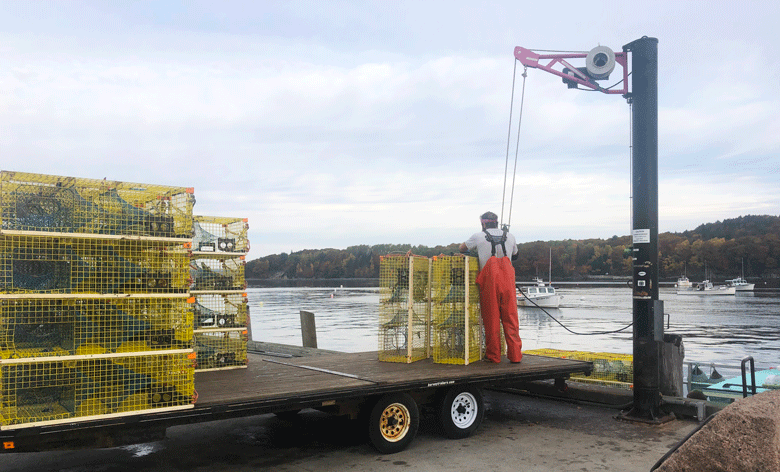Along with voting in Maine’s gubernatorial and legislative races, residents of some coastal towns made choices on local issues. In Bar Harbor, an ordinance to more strictly regulate cruise ships passed, now limiting 1,000 passengers to come into town each day. Enforcement may remain elusive, though.
In the Boothbay area, residents rejected a referendum that would have mandated removing fluoride from the local water supply. Voters in 2004 approved the addition of the chemical.
~ ~ ~
Portland voters had a full ballot of local initiatives, including one on cruise ships that would have restricted the number of people getting off cruise ships at 1,000 per day beginning in 2025. It failed by a wide margin.
City residents also defeated measures to strengthen the mayor’s role while diminishing the city manager’s position, and shot down a move that would have raised the minimum wage to $18 an hour and eliminated the tipped-employee wage.
Two referendums in the city that would have banned short-term rentals operated by corporations, required operators to live within 20 miles of the city, and required owners to live in the building, also failed.
Voters did approve a measure requiring landlords to give 90-day eviction notices, regardless of whether tenants hold leases or are at-will residents.
~ ~ ~
A proposal by Worcester Holdings to construct a $1 billion Flagpole of Freedom Park in Columbia Falls—including a 1,776-foot tall pole (referencing the year 1776, of course)—has hit an early hurdle. The Quoddy Tides reports that developers “balked at a request by the town of Columbia Falls for $150,000 to be placed in escrow to cover the town’s costs related to the project.”
~ ~ ~
For years now, Maine has been cleaning up part of the remnants of a racist past by replacing geographic names. On Election Day in Castine, residents chose new potential names for islands in the Bagaduce River historically called Upper and Lower Negro islands.
Though the names’ history, which dates to the 1700s, is unclear, residents selected Esther Island and Emanuel Island, the names referencing two of the earliest enslaved African Americans living there. The names will be sent to a federal board that oversees such changes.
~ ~ ~
The U.S. Navy has found perfluoroalkyl and polyfluoroalkyl substances concentrated near the runway of the former Brunswick Naval Air Station, now Brunswick Landings, and “may be a primary source of PFAS” in local groundwater, the Harpswell Anchor reports.
The findings confirm what concerned residents believed, that chemicals used by the military are “migrating off the former base,” the paper reports.
~ ~ ~
Belfast’s city council is again looking at ways to develop a one-plus acre parcel of city-owned waterfront land dubbed “Belfast Yards.” One proposal from Mike Hurley, a city councilor, would encourage small lots to be divided so businesses, organizations, and residents could develop buildings there.
Hurley argues that these smaller properties are absent from the downtown.
~ ~ ~
After residents in Jonesport approved a referendum, restaurants are now able to serve alcohol for the first time. The vote was 431-160.
The measure was offered by a local dentist who opened a restaurant, the Bangor Daily News reports.
“I did not expect it to be that much of a landslide,” said Wayne Yee, who circulated a petition for the vote and owns a dental practice in the small fishing community.
~ ~ ~
The headline in the Deer Isle-Stonington newspaper Island Ad-Vantages comes close to telling the whole story: “Not again: One toilet causes six-figure water loss.”
In recent summers, that rocky island has not been able to produce enough water for Stonington’s public water system. The Stonington Water Company has had to have water trucked in from Bucksport—200,000 gallons a trip at a cost of about $25,000.
In February, an undetected burst pipe in a home closed for the season resulted in 103,000 gallons of water being wasted. The latest news is that a running toilet wasted about 130,000 gallons of water from mid-August to early October.
The toilet in question was in an apartment over a business. The owner of the building will have to pay for the overage, the water company reported.





